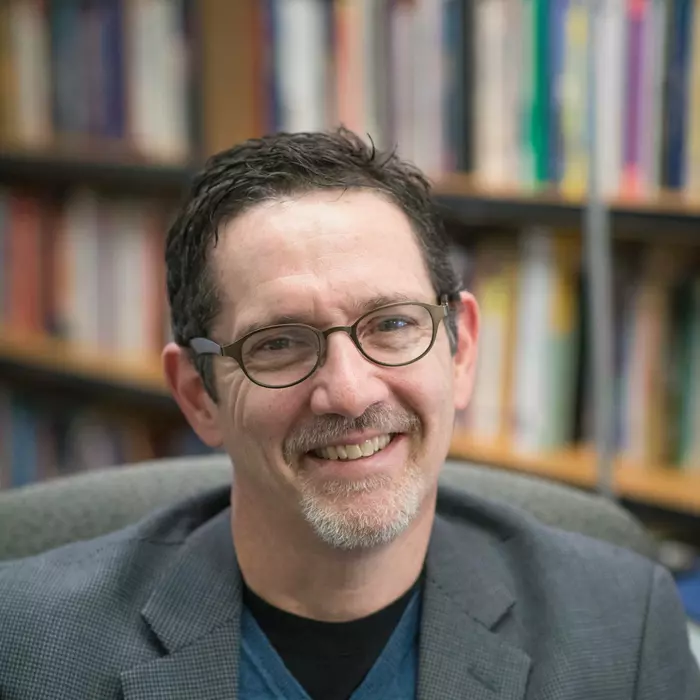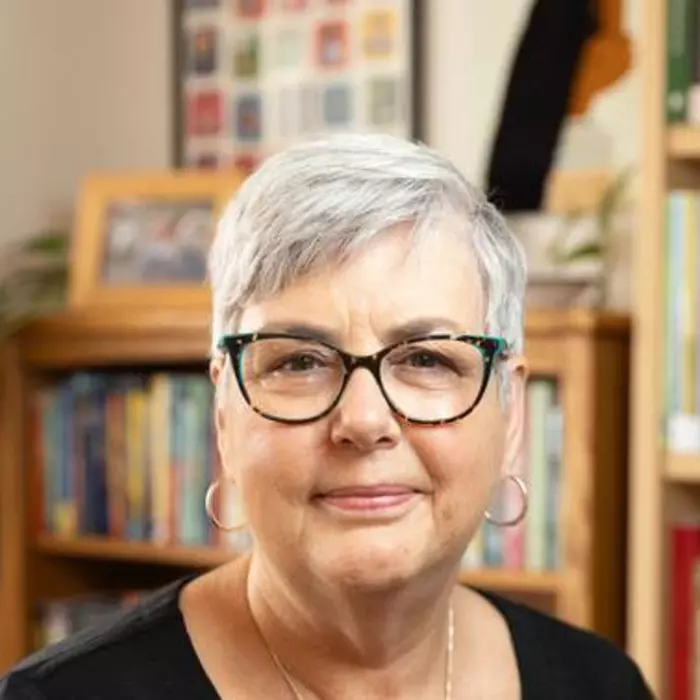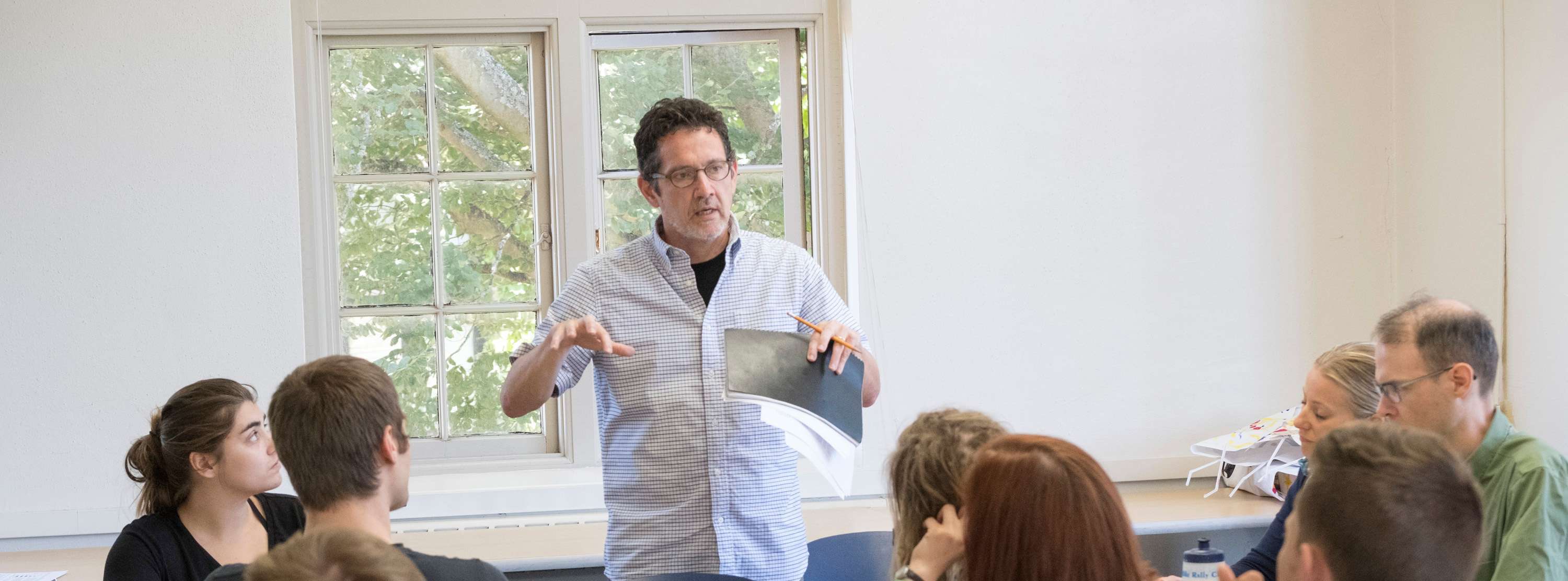Education Studies students participate in local education settings. In 200-level education classes, students use a social justice lens to explore topics such as economic inequality, literacy, and gender, connecting these topics to their work in local educational settings. During the capstone experience, students work extensively in a local classroom helping teachers ask questions and gather data to improve their teaching. Students learn to appreciate the complexities of classroom practice and experience a model for making positive change.
School of Education
1500 N. Warner St. #1051
Tacoma, WA 98416-1051
Program Description
- Teacher
- Counselor
- Social worker
- Community activist
- Educational policy analyst
- To question personal biases and social location, as well as the inequities that shape individuals, interpersonal interactions, and institutions to acknowledge the full humanity of students, families, educational personnel, and other stakeholders
- To use theory and experience to critically consider how educational policy and classroom practices materially impact the learning opportunities available to P-12 students

"Working with kids has always been my passion. I appreciated getting to do that, along with furthering my knowledge about what education means, in particular how to challenge the traditional mold of education and what it looks like to work with students to make learning a collaborative experience."
Schools, and other social institutions strongly influence, impact and police the construction of identity. This course examines the nature of schooling and the socializing power of schools, using gender as its primary lens for analysis and considering how gender interacts with other facets of identity including race, ethnicity, sexual orientation, and socioeconomic status. Through readings, writing, discussion, and time spent in schools, students examine the hidden and official curriculum schools use to teach about gender identity and norms. Successful completion of this course requires a commitment to spend 10 hours outside of class volunteering in a school or a youth-serving community organization.
The history of legislated and de facto everyday white supremacy in public schooling and social life has created a highly segregated teaching force. Most U.S. teachers are white, middle-class, monolingual females who grew up in predominantly white communities. Teachers of color are dramatically under-represented in the teaching force, and children of color have very limited representations of their racial identity throughout their schooling experience. The central work of this course is to center race as a lens for understanding miseducation in American schooling. Through shared discussion, reading, and engagement in public school communities, students will confront the assumptions of whiteness in U.S. schooling and seek to unlearn socialized assumptions about race. Students will reflect on classroom and community learning, as well as personal experiences, to develop and apply strategies and action steps that promote equity in learning contexts.
Teaching reading has never been politically neutral because reading instruction, when it is done well, requires that we read something. Underlying this course is an assumption that the selection of what students read should consider the promotion of American ideals of liberty and justice for everyone. Together students think about the messages children's and young adult books send and how to select books that promote social justice. Students read children's and young adult books that include people from different racial groups, and books that open up ideas of gender and sexuality. Successful completion of this course requires a commitment to spend regular time working with youth.
This course focuses on the ways in which educators, politicians, and the public view the state of American schools. Broad philosophies of education guide an analysis of schools, which include historical lenses as well as the current literature on classroom reforms. This course contrasts central issues of schooling as seen from the "outside" political domain and the "inside" experience of students. In particular, the course addresses how issues of race and social class as well as economic inequality surround current debates over the best way to improve schools in the 21st century. This course is intended both for prospective teachers and for students interested in examining critically the policies that shape one of the key institutions in American society. Required for the Education Studies minor and for admission to the MAT program.
The central topic of this course is the ways teachers view learning, instruction, classroom organization, and motivation. This course takes a micro-analytical approach focusing on classroom interactions and how a teacher plans for a range of student interests, experiences, strengths, and needs. Students in the course consider 1) how the teacher inquiry cycle of planning, teaching, and reflecting supports teacher identity development and improves instruction, and 2) how the interactions between teachers and students, and amongst students, are located at the intersections of issues of knowledge, identity, and power.
This is the capstone course and culminating experience for the Education Studies minor. Participants should have completed most or all of their Education Studies coursework before enrolling. During the course, students work with a mentor teacher to examine instructional practice and student learning in a classroom setting. Students learn about action research, and develop a study in their school-based classroom, identifying relevant questions, collecting and analyzing data, and developing practical implications.
Experiential Learning
Education studies students participate in local education settings, learning to appreciate the complexities of classroom practice and experiencing a model for making positive change.
In 200-level education classes, students use a social justice lens to explore topics such as economic inequality, literacy, and gender, connecting these topics to their work in local educational settings.
During the 400-level capstone experience, students work extensively in a local classroom helping teachers ask questions and gather data to improve their teaching.
Where Graduates Work
Where our graduates work:
- James Sales Elementary School, Tacoma, WA (teacher)
- Oregon Health and Science University (public health)
- Bright Horizons Preschool, Seattle, WA (teacher)
- Department of Education (administrative assistant)
- Future Public School, Boise, ID (learning engineer)

Prof. Hamel seeks to spread awareness and appreciation of the complexity involved in teaching and student learning. He teaches both curriculum and instruction courses, with a focus on literacy.

Prof. Thompson teaches in the undergraduate education studies minor and the MAT program. She is interested in the social and political contexts that inform how we think about teaching and learning and the complex process of becoming a teacher.

Prof. Wellington teaches in the undergraduate education studies minor and the MAT program. She is passionate about teaching education from historical and intersectional perspectives.

